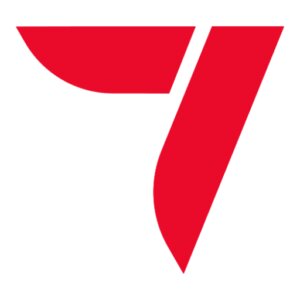Best Gaming Lawyers in Santiago
Share your needs with us, get contacted by law firms.
Free. Takes 2 min.
List of the best lawyers in Santiago, Chile
About Gaming Law in Santiago, Chile
Gaming in Santiago, Chile covers a variety of activities including casinos, sports betting, lotteries, online gaming platforms, and video game development and distribution. The city is a central hub for both traditional gambling establishments and a growing tech-driven gaming industry. Both sectors are subject to strict regulation to ensure fair play, consumer protection, and compliance with financial and ethical standards. Understanding how these regulations affect your gaming activities or business in Santiago is essential for avoiding legal complications.
Why You May Need a Lawyer
There are several common scenarios where legal assistance in the gaming sector becomes necessary. If you are an entrepreneur seeking to open a casino, betting shop, or online gambling website, you must navigate licensing and regulatory requirements. Game developers and distributors often need legal counsel to manage intellectual property, user agreements, and privacy issues. Players and consumers sometimes require help resolving disputes, fraudulent practices, or concerns over winnings. A lawyer can also assist with compliance audits, taxation matters, and resolving conflicts with regulatory bodies. Seeking professional advice early can save time, money, and protect your rights.
Local Laws Overview
Gaming activities in Santiago are primarily regulated under national Chilean law, though municipal authorities may also play a role in granting permits and enforcement. The Superintendencia de Casinos de Juego is the main body overseeing land-based casinos, ensuring only licensed operators can provide gaming services. Online gambling is still evolving legally, with proposed reforms aiming to create a clearer regulatory framework. Sports betting and lotteries are managed by regulated providers, and illegal operations are strictly prohibited. Intellectual property legislation protects video game developers, and data privacy laws must be followed for both operators and players. Taxation depends on the type of gaming undertaken and whether the entity is a business or individual. Non-compliance can result in heavy fines, closure of businesses, and even criminal charges.
Frequently Asked Questions
What types of gaming activities are legal in Santiago, Chile?
Casino gambling, lotteries, and regulated sports betting are legal under licensed operators. Online gaming is permitted in specific forms, but pending legislation may affect its status.
Who regulates casinos and gambling in Santiago?
The Superintendencia de Casinos de Juego is the chief regulatory authority for casinos, in collaboration with local municipal bodies.
Is online gambling legal in Santiago?
Online gambling is a developing area in Chilean law. Some activities are allowed, particularly those offered by state-sanctioned companies, but unlicensed operations are considered illegal.
What licenses are required to open a gaming business?
Operators must obtain specific gaming licenses from the relevant regulatory authorities and adhere to strict compliance measures before legally offering services.
What are the consequences of operating a gaming establishment without a license?
Operating without a license can lead to closure, significant fines, confiscation of equipment, and potential criminal liability for responsible parties.
Can foreign companies operate gaming businesses in Santiago, Chile?
Foreign investment is permitted but subject to the same licensing and regulatory obligations as domestic companies, often requiring a local subsidiary or partnership.
Are winnings from gambling taxed in Chile?
Taxation varies by type of gaming. Casinos are taxed on earnings, and individuals may be liable for taxes on substantial winnings, subject to current regulations.
How can players resolve disputes with gaming operators?
Players can file complaints with the Superintendencia de Casinos de Juego or relevant consumer protection bodies. Legal action may be necessary for unresolved claims.
How are video game developers protected in Chile?
Developers’ creations are protected by intellectual property laws. Copyright registration, contracts, and license agreements are essential legal tools.
What consumer protections exist in the gaming sector?
Consumer protection laws ensure fair terms, transparent advertising, and avenues for dispute resolution. Regulators supervise compliance and can intervene in cases of abuse or fraud.
Additional Resources
If you need more information or official guidance on gaming laws in Santiago, consider consulting the following resources:
- Superintendencia de Casinos de Juego - the main regulatory authority for casinos
- Servicio Nacional del Consumidor (SERNAC) - for consumer rights and protection
- Ministerio de Hacienda de Chile - for information on tax regulations related to gaming
- Asociación Chilena de Empresas de Juegos (for industry insights)
- Local law firms specializing in gaming and entertainment law
Next Steps
If you believe you require legal advice related to gaming in Santiago, take the following steps:
- Identify your specific needs, whether personal or business-related
- Gather all relevant documentation and information about your case or proposed activity
- Contact a lawyer specializing in gaming law or a law firm with experience in entertainment and regulatory matters
- Request a consultation to receive a preliminary assessment and understand the process
- Follow your lawyer’s advice regarding compliance, licensing, or dispute resolution to protect your interests and ensure legal operation
Legal requirements can be complex, but expert guidance can help you navigate Chile’s gaming landscape smoothly and with confidence.
Lawzana helps you find the best lawyers and law firms in Santiago through a curated and pre-screened list of qualified legal professionals. Our platform offers rankings and detailed profiles of attorneys and law firms, allowing you to compare based on practice areas, including Gaming, experience, and client feedback.
Each profile includes a description of the firm's areas of practice, client reviews, team members and partners, year of establishment, spoken languages, office locations, contact information, social media presence, and any published articles or resources. Most firms on our platform speak English and are experienced in both local and international legal matters.
Get a quote from top-rated law firms in Santiago, Chile — quickly, securely, and without unnecessary hassle.
Disclaimer:
The information provided on this page is for general informational purposes only and does not constitute legal advice. While we strive to ensure the accuracy and relevance of the content, legal information may change over time, and interpretations of the law can vary. You should always consult with a qualified legal professional for advice specific to your situation.
We disclaim all liability for actions taken or not taken based on the content of this page. If you believe any information is incorrect or outdated, please contact us, and we will review and update it where appropriate.
















